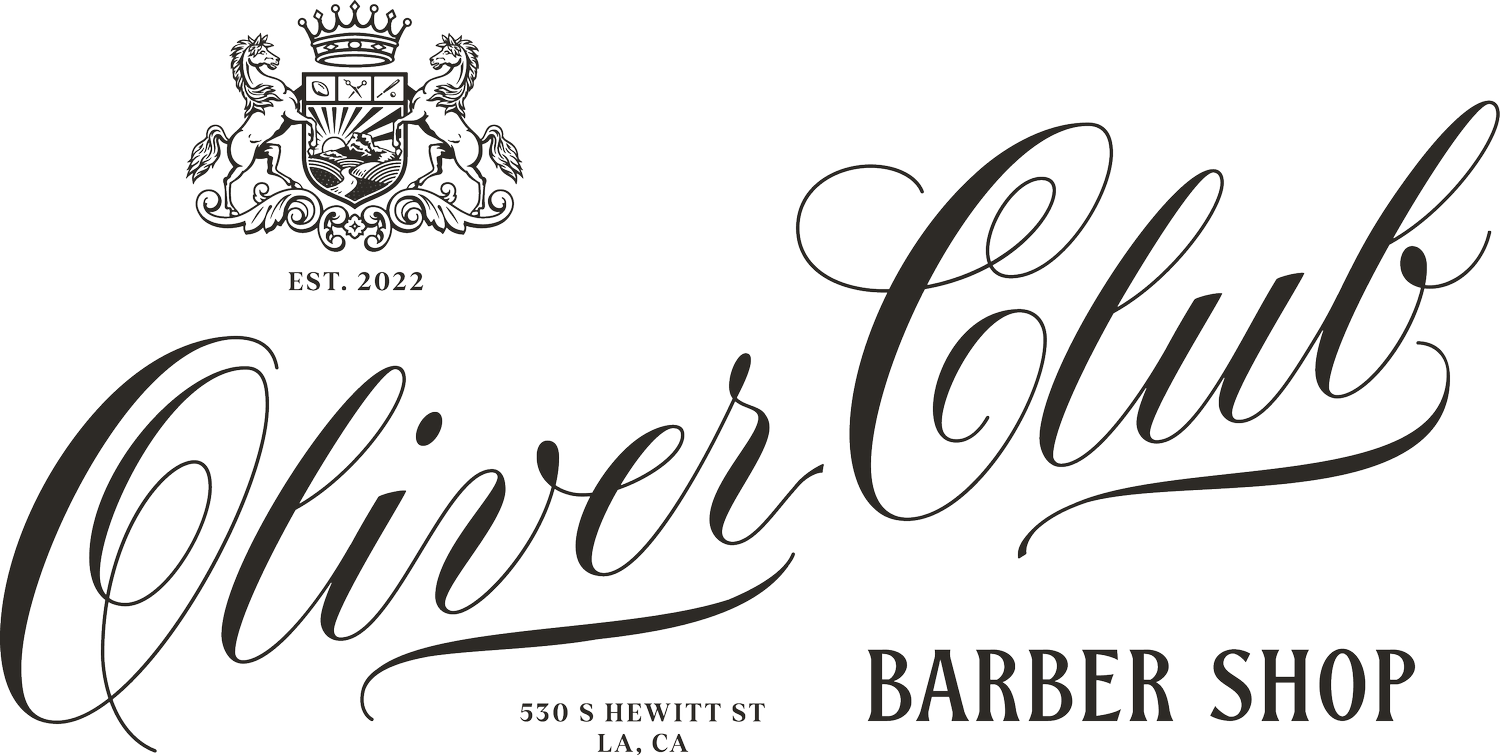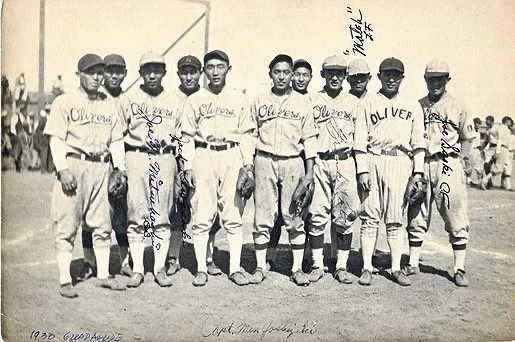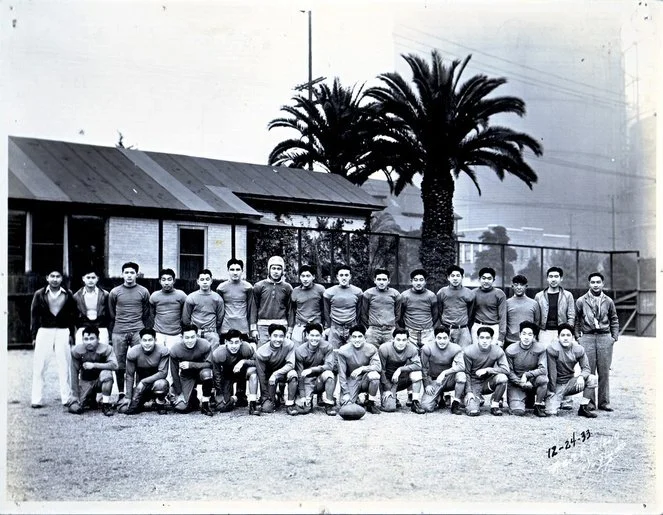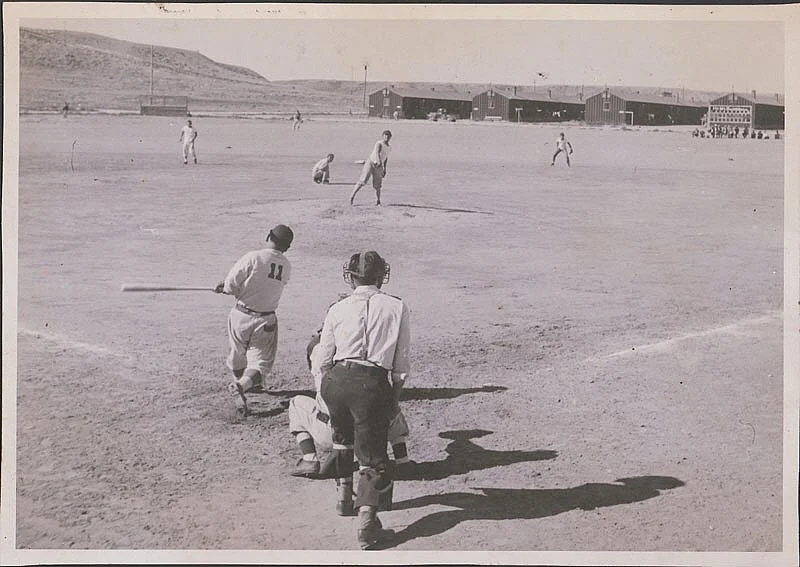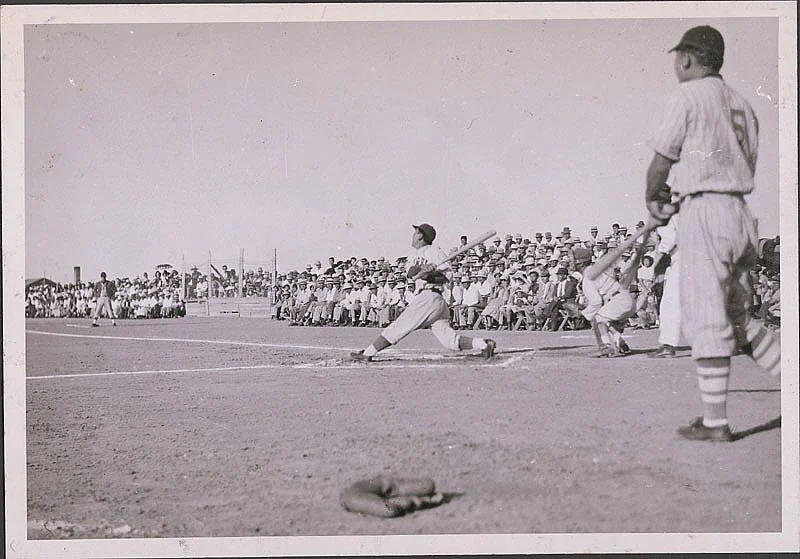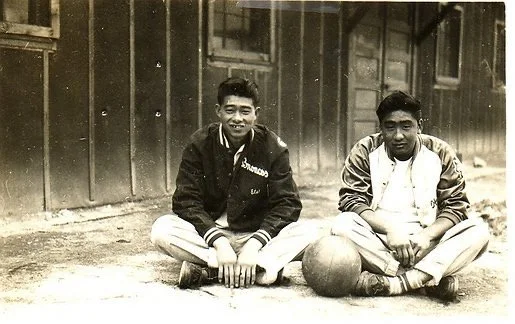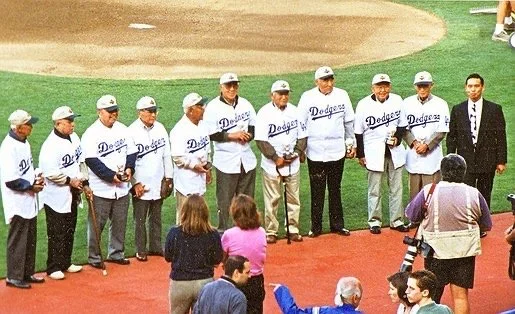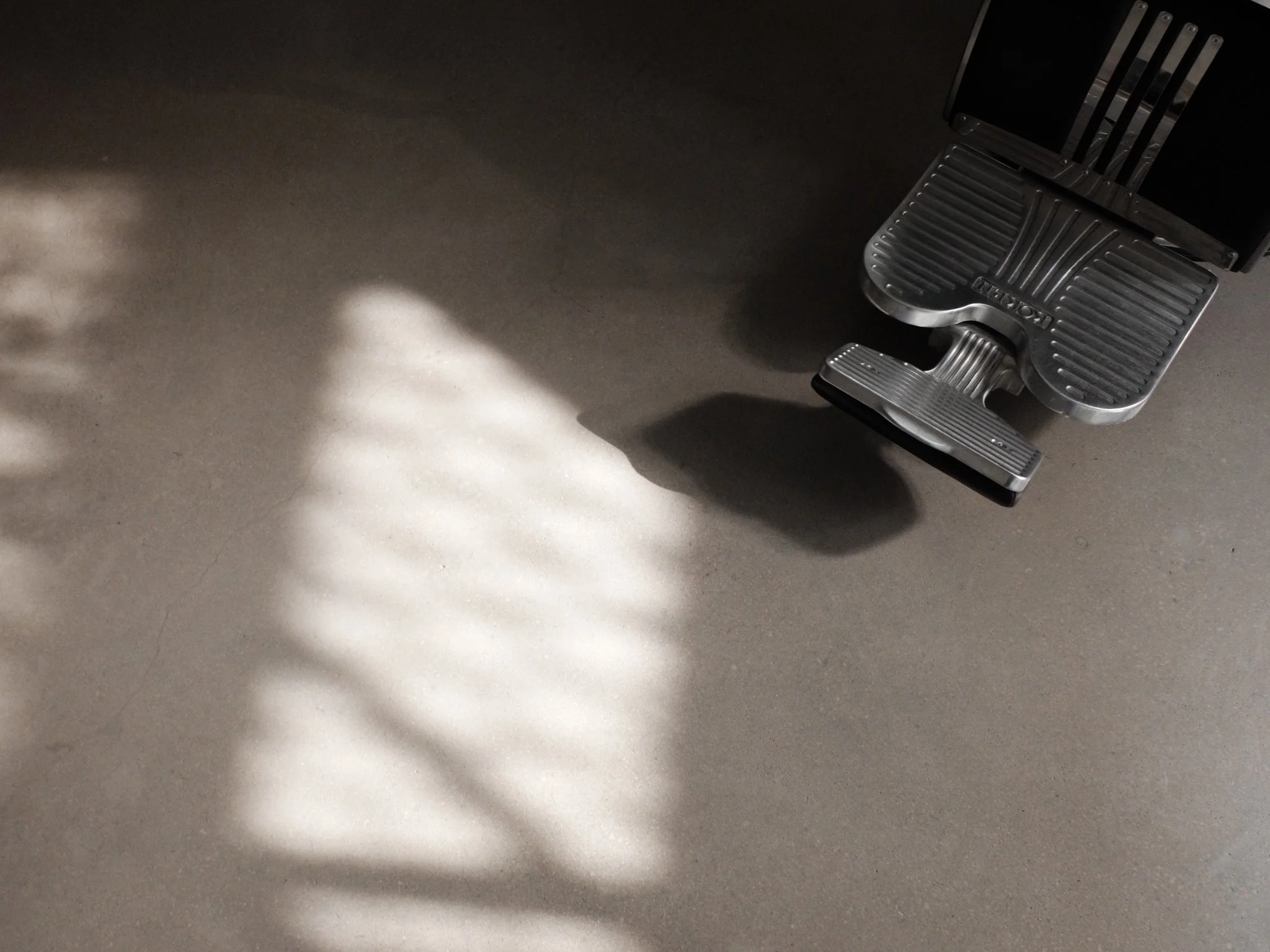Rooted in a century of community, The Oliver Club offers a modern ritual of grooming defined by artistry, connection, and quiet hospitality.
Little Tokyo, Los Angeles
The Oliver Club
1917
In 1917, amid the cultural bustle of Little Tokyo, Los Angeles, a modest yet profound institution took shape. The Oliver Club was founded by Nellie G. Oliver, a dedicated schoolteacher with an uncommon vision: to create a sanctuary where young Japanese American youths could find mentorship, discipline, and camaraderie through organized sport. But it was never just about the games. It was about belonging—about shaping character in a time and place that offered few such sanctuaries.
Park County, Wyoming
Heart Mountain
1942
Throughout the 1920s and 1930s, The Oliver Club became a heartbeat of its community. In an era defined by exclusion, it offered young men an arena to lead, to grow, and to express quiet pride. Athletic excellence, particularly in football and baseball, became the club’s language. Its true purpose lay in what it cultivated off the field: trust, tradition, and shared dignity.
In 1942, Executive Order 9066 swept across the West Coast, and with it, The Oliver Club was disbanded. Families were uprooted. Members were sent to concentration camps. Yet the spirit of the club refused to be extinguished. At Heart Mountain Relocation Center in Wyoming, former members continued to organize games, offer mentorship, and uphold the values they had once practiced freely. Within barbed wire and barracks, The Oliver Club’s soul endured. Resilient, quiet, unbroken.
Los Angeles, California
The Olivers
1961
Nearly two decades later, in 1961, the legacy was quietly rekindled. Ets Yoshiyama—club member and great-uncle to the barber shop’s founder—helped revive The Olivers, not to recreate the past, but to preserve its spirit. For many who had endured hardship and displacement, the club had been more than a sports organization. It was a place of shared struggle and strength, where lifelong bonds were forged in moments of quiet defiance and camaraderie.
They understood that those connections, once formed, deserved a future. Reimagined as a scholarship and mentorship initiative, the club offered returning members and their future families a renewed sense of belonging and a foundation for younger generations to build upon. It became a belonging where those who had endured together could gather once more. Proud, with purpose, and with a vision of what might still be possible.
Arts District, Los Angeles
Oliver Club Barber Shop
2022
Today, The Oliver Club Barber Shop continues a century-long lineage, carried through stories, camaraderie, and the quiet bonds of brotherhood. Hidden from sight, just steps from the original club, the shop honors its heritage not through nostalgia but through refinement. Here, grooming is ritual. Hospitality is quiet, personal, precise. Every hot lather shave, every cut with intention, is an homage not just to style but to story.
Guests of The Oliver Club don’t simply receive a service; they participate in a legacy. One of resilience, quiet dignity, and meticulous care. A history not shouted but felt in the stillness of a warm towel, the weight of craftsmanship, and the intentional pause that defines true hospitality.
